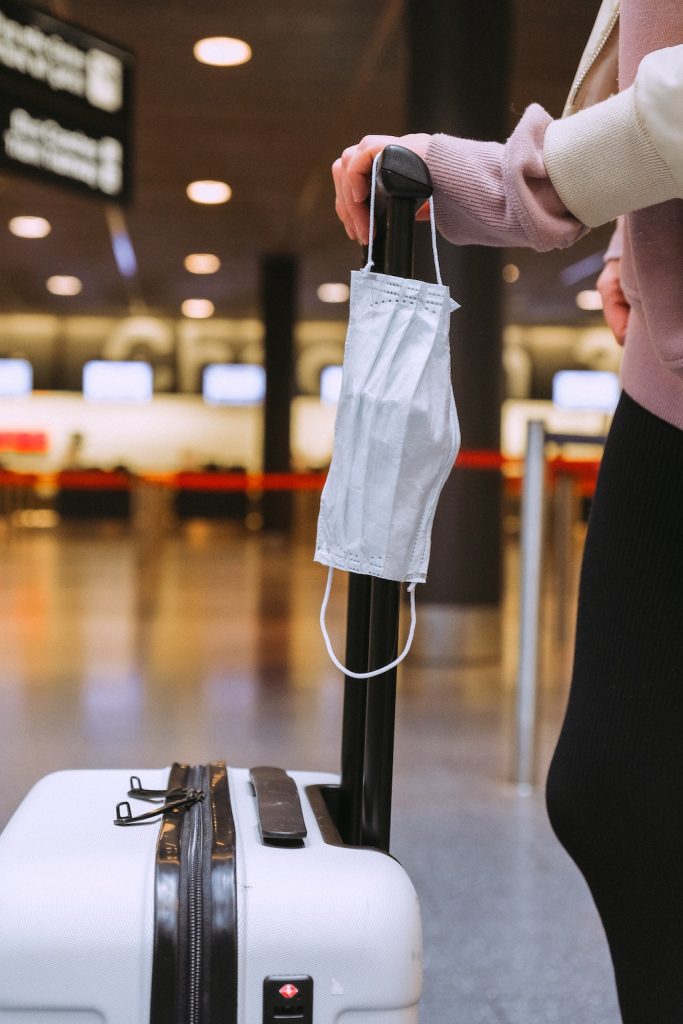SingaporeMotherhood | Family Fun
June 2023
12 Essential Tips to Buy the right Travel Insurance for your Family

Did you ‘revenge travel’ with your family during the recent school holidays? And if so, did you remember to buy travel insurance? Travel insurance helped ease the cost of inconvenience when my friend’s luggage was lost in transit during her multi-city jaunt recently. Stuck in Istanbul with only the clothes on her back, the mother of two made do by handwashing her clothes everyday. She managed to claim from her travel insurance, but cautioned that you need to “check the insurance clauses, and follow up immediately with all papers and receipts.” A spokesperson from the General Insurance Association of Singapore (GIA) gives us the lowdown on buying travel insurance below. Take note of these tips, and keep them in mind for your next trip. Happy travels!
1. The most expensive may not be the best

The best policy is the one that adequately covers you for your needs. A basic travel insurance policy should cover you for general travel inconveniences that may arise regardless of your itinerary. For example:
- Missing baggage / baggage delays
- Travel delays
- Overseas medical expenses, evacuation or repatriation
- Trip cancellations or postponements
- Insolvency protection should your travel agency go bust before your trip
- Theft of or damage to your personal belongings
Typically, travel insurance provides reimbursement for financial losses arising from travel inconveniences. It also provides cover for very high value losses such as overseas medical expenses, and emergency medical evacuation or medical repatriation, which can come up to six figures.
While uncommon, such situations are not unlikely. We have seen reports of travellers who crowdfunded to cover these huge bills. Often, these travellers make the assumption that nothing will happen on their trip and opt not to buy travel insurance.
2. Consider if your travel policy covers specific needs

When shopping for your travel insurance policy, consider if you need one that meets specific needs such as:
- Pre-existing illnesses
- Travelling to or through countries that are excluded from cover
- Hazardous activities
- Driving a rental vehicle
You want to make sure that your policy covers these. It is always important to understand your policy terms and conditions as well as exclusions. In addition, travel insurance also provides you with services that may come in handy, including 24-hour overseas emergency hotlines. This helps alleviate duress especially in destinations with language barriers and limited accessibility to medical services.
3. Most policies will cover for COVID-19

Most travel insurance policies provide cover for COVID-19 related expenses. These may include:
- Overseas COVID-19 medical expenses and hospital and/or quarantine cash allowance.
- Cancellation or curtailment of trip if the policyholder or travel partner(s) contract COVID-19 before or during their trip. This allows you to claim for any additional arrangements required to postpone or cancel your trip. It also lets you claim if you have to return to Singapore later than expected because of COVID-19.
4. Purchase upwards when buying travel insurance for elderly parents and grandparents

Some insurers provide a lower medical coverage limit for seniors over 70 years old. Hence it is important to understand the benefits available for different policies. For example, if you are travelling to a long-haul destination or a destination where medical services are not easily accessible, you might want to consider purchasing a policy that offers higher medical coverage for your elderly loved one.
5. Check if pre-existing medical conditions are covered
Not all travel insurance policies cover pre-existing medical conditions. If your loved one has any pre-existing conditions, it is important to buy a suitable travel insurance plan that provides the necessary cover.
Travel policies that cover for pre-existing medical conditions typically include coverage for the following:
- Overseas medical expenses
- Hospitalisation cash
- Emergency medical evacuation costs that may arise during travel relating to the traveller’s pre-existing medical condition

Take note:
Depending on policy, benefits such as trip cancellation because of the traveller’s medical condition may not apply. This means that if you have to visit the hospital because of your diabetic condition before the trip, and have to cancel, you may not be able to make a claim.
If you require more coverage, purchase personal accident insurance to supplement your travel insurance benefits. You should understand your policy terms and conditions, exclusions as well as benefits, before going on your trip.
6. Buying travel insurance for infants and children is different

There are several factors when it comes to purchasing travel insurance for your child:
a. Your child’s age – Some insurers require the child to be of a minimum age before purchasing a standalone travel insurance policy.
b. Cover limit and exclusions – Check the cover limit and exclusions for family policies. Some may have a maximum claimable benefit across all individuals covered under the plan.
c. Pre-existing medical conditions – If your child has a pre-existing medical condition, check that the policy provides coverage for this. Travel policies that cover for these will allow you to make claims should complications arise from your child’s condition while overseas. For instance, if your child has an asthma attack and needs hospitalisation, you will be able to claim for overseas medical expenses.

d. Nature of activities – If your child will be engaging in adventurous activities such as white-water rafting, canoeing or rock climbing, check that your child’s travel policy provides cover for these activities under medical expenses, accidental death, and permanent disability.
Take note:
Some family travel policies may also have an age limit. So it is important to check that your child falls within this limit as well.
Similarly, check that your child has the same coverage as you. For some policies, there may be separate coverage limits and benefits for adults and children under a single policy.
When it comes to family travel insurance policies, look out for family-oriented benefits that may come in useful, such as childminder benefits.
7. Travel insurance does not always cover special needs
Check with your insurer if your child’s health condition has coverage under the travel insurance policy, as this differs from insurer to insurer. If the pre-existing health condition is not covered, you will not be able to claim for anything relating to your child’s medical condition before or after the trip.
(See also: 12 Things to Know when you have a Child on the Autism Spectrum in Singapore)
8. Sometimes, individual plans are better than family plans

While a family insurance plan is usually more affordable, it often offers less flexibility and customisation. For example, if one family member has a pre-existing medical condition, the family travel insurance policy may not cover this individual.
In addition, most family travel insurance policies have a policy limit. Say the policy has an overall S$1,000,000 overseas hospital benefit. If all four members of your family under this policy require medical attention, all four are covered within that overall limit.
9. Don’t scrimp on travel insurance even if you are only visiting somewhere nearby
Regardless of trip duration, it is important to review your itinerary, consider the nature of activities you will be engaging in, whether you intend to make multiple trip connections, and what extra cover you may require. For example, if you are going on a weekend trip to Malaysia for a mountain biking competition, you will need to esnure that the activity is covered.
Do not scrimp on cover for overseas medical expenses even if you are only travelling to nearby places. Given that English may not be the first language in many countries in Southeast Asia, it is important to purchase a policy that offers emergency assistance helplines in English.
10. Check for adequate coverage if you are planning an adventure trip

If you will be engaging in higher risk activities or adventure sports like skydiving, skiing and bungee jumping, review your policy to ensure that these are covered. After all, there’s no guarantee that your parasailing adventure will land you safely in the arms of a hunk like Hyun Bin.
Since you will have to buy extended cover for the higher risk activities, you should consider if purchasing an individual policy will be more feasible than a blanket family policy. This is especially so if not all members of the family will be doing the activities.
In addition, you should purchase policies that cover for personal liability relating to these higher risk activities in case of any injury or damage that you may cause to others. These can also add up to substantial amounts.
(See also: 12 + 1 Most Family-friendly Cities Around the World to Visit in 2023)
11. Baby-mooners? Check if your travel insurance covers pregnancy

Some travel insurance policies exclude or limit coverage for pregnancy-related complications that may occur before or during the trip. However, depending on the policy, some do cover pregnancy-related conditions and expenses. These include medical expenses relating to pregnancy-related morning sickness or trip cancellation due to gestational diabetes.
Therefore, if you are pregnant, and want to travel, you should read and understand the exclusions section of the policy wordings to better understand the policy before purchasing one.
Additionally, consider buying international maternity insurance that will cover pregnancy-related contingencies more comprehensively.
(See also: Can I Take a Flight while Pregnant?)
12. Buy travel insurance early
Purchase travel insurance upon confirming your travel plans so that you can benefit from pre-trip cover such as trip cancellation or postponement, and travel agency insolvency. The earlier you purchase the plan, the earlier you have insurance against unforeseen circumstances that may affect your trip.
Travel insurance for the family? Yes
So even as you book your flights, and plan your itinerary down to the minute, take a moment to check if your family is fully protected for the holiday. That way you can truly enjoy without any worry. Happy travels!
Featured image: jcomp on Freepik
All content from this article, including images, cannot be reproduced without credits or written permission from SingaporeMotherhood.
Follow us on Facebook, Instagram, and Telegram for the latest article and promotion updates.





